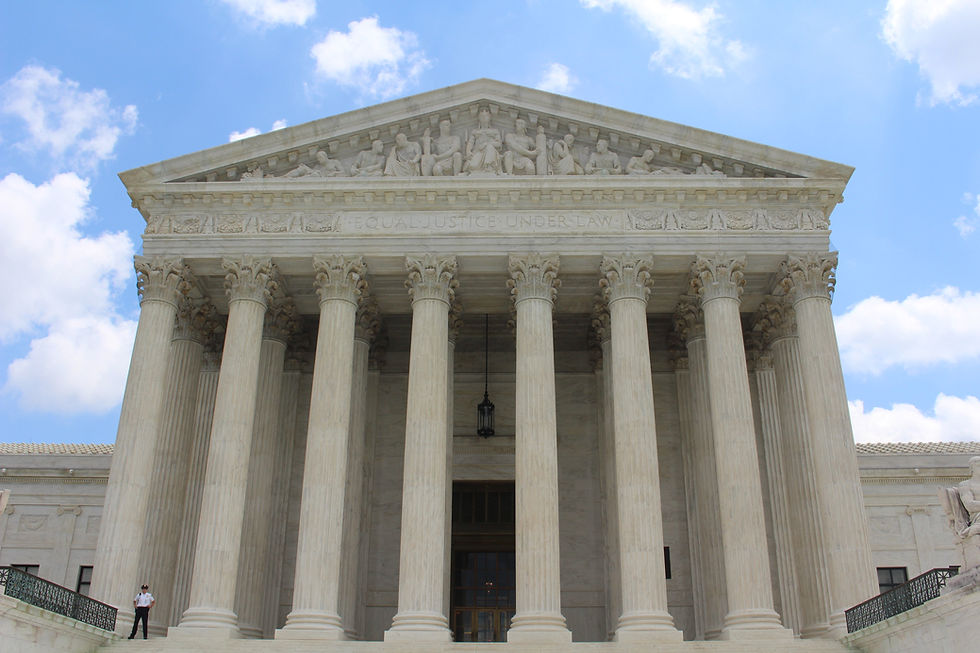Legislative Report - Week of 4/10

Governance Team
Coordinator: Norman Turrill
-
Campaign Finance Reform: Norman Turrill
-
Cybersecurity Privacy, Election Issues, Electronic Portal Advisory Board: Becky Gladstone
-
Election Systems: Barbara Klein
-
Redistricting: Norman Turrill, Chris Cobey
-
Voting Rights of Incarcerated People: Marge Easley
Jump to a topic:
Cybersecurity and Public Records
Rights of Incarcerated People
Redistricting
Governance
By Norman Turrill, Governance Coordinator, and Team
Privacy, Transparency, Public Records, and Cybersecurity
By Rebecca Gladstone
Bills are appearing fresh here, including some we missed in the first chamber. These are complex issues meriting careful research, some with interestingly split votes:
HB 2107 extends automatic voter registration via the OHA, Oregon Health Authority. We were sorry to see an amendment for a pending work session to cut the Powder River facility pilot project from the bill.
HB 2129: This communications transparency bill addresses executive session confidentiality, recording of confidential meetings, communications in the public interest and public records issues that relate to our SB 417 Task Force discussions. It passed from the House with broad support, public hearing rescheduled to Sen. Judiciary for April 20.
SB 11 requires virtual public state meetings to record and promptly publicize recordings. This has strong bipartisan support for access and transparency. We will be looking for data retention cybersecurity guardrails.
HB 2095: This traffic-cams-in-cities bill passed from the House 35 to 20, awaiting Senate floor 2nd reading.
HB 3127 A: No hearing is set yet for this “TikTok bill”, referred to Sen. Vets, Emergency Management, Federal and World Affairs. It prohibits installing or downloading certain “covered products” onto state information technology assets. It passed 52 to 4 from the House floor, not on strictly partisan lines. (Reminder, this will not apply to other users.)
HB 5035: We noted 100 filed statements, most very brief, many openly responding to a request for Corporate Division funding support. The League, Common Cause, The Oregon Association of County Clerks, and the Attorney General submitted on other aspects of the bill. See Lobbying email from Oregon Secretary of State’s office raises eyebrows in Salem. We support this SoS budget bill (our testimony).
SB 510: This SB 417 funding bill was voted all ayes, with two excused from JW&Ms on April 7, with a Do Pass recommendation. It would improve efficiency, cost estimates and budgeting, and sustainable funding for the PRAC. See our testimony in support.
SB 417: The Task Force appointed at Sen. Rules’ Chair Lieber’s request after the Feb 7 public hearing, continues to meet weekly, hoping to conclude soon to propose an amendment. This phrase is an example from the bill: “(D) Whether waiving or substantially reducing fees would create an articulable and substantial burden on the public body in a manner that outweighs the public interest in disclosure….” We support this detailed PRAC bill to increase efficiency in processing public records requests, considering fee waivers, defining “media”, waiving records request fees when made in the public interest, and considering malicious intent in placing requests; see our testimony.
SB 166 passed on a 2/3 not strictly partisan vote from the Senate Floor on April 6 and was referred to House Rules. This bill is not promising for the multiple concerns that we recommended be addressed in our testimony. This three-part bill would codify that actual voting on ballots is not revealed (never has been). It only addresses protecting elections workers, offending substances shall not be thrown at them, and elections should have cybersecurity plans. We recommend further amending, citing extensive references to our earlier relevant testimony. Technical harassment definitions should be expanded, as we note, for example to doxing, with extensive privacy issues, and extended to protect all involved in elections, even voters, from harassment and intimidation, as reported last fall, OPB. We anticipate the value of having these protections in place before the 2024 elections. We link to our other testimony support for elections as critical infrastructure, for cybersecurity, and for protecting our cyber defense plans.
SB 1073 passed in a Senate Information Mgmt. and Tech. WS, April 5, was referred to W&Ms with a Do Pass recommendation, adopting the -3 amendment, which we support. Growing data management risks justify this bill to establish a state Chief Privacy Officer (CPO). This office in DAS would coordinate cybersecurity services with data governance and transparency / privacy concerns, would set rules, develop and share educational materials and forums. We again recommend reading our privacy and cybersecurity work. We support the networking for state agency CPOs and others around the state.
Rights of Incarcerated People
By Marge Easley
After passing the Senate, SB 529 had a public hearing in House Judiciary on March 27 and was scheduled for a work session on April 12. The bill modifies legislative findings concerning alternative incarceration programs related to substance abuse. It requires that intensive addiction programs for incarcerated individuals address addiction as a chronic disease and include a range of treatment services.
Redistricting
There has been no movement on redistricting in the legislature. People Not Politicians has started collecting signatures on IP 14 petitions downloadable from its website.
VOLUNTEERS NEEDED. Worthy causes go unaddressed for lack of League volunteers. If you see a need and can offer your expertise, please contact our staff at lwvor@lwvor.org.